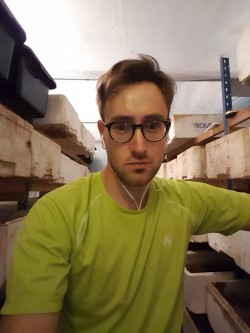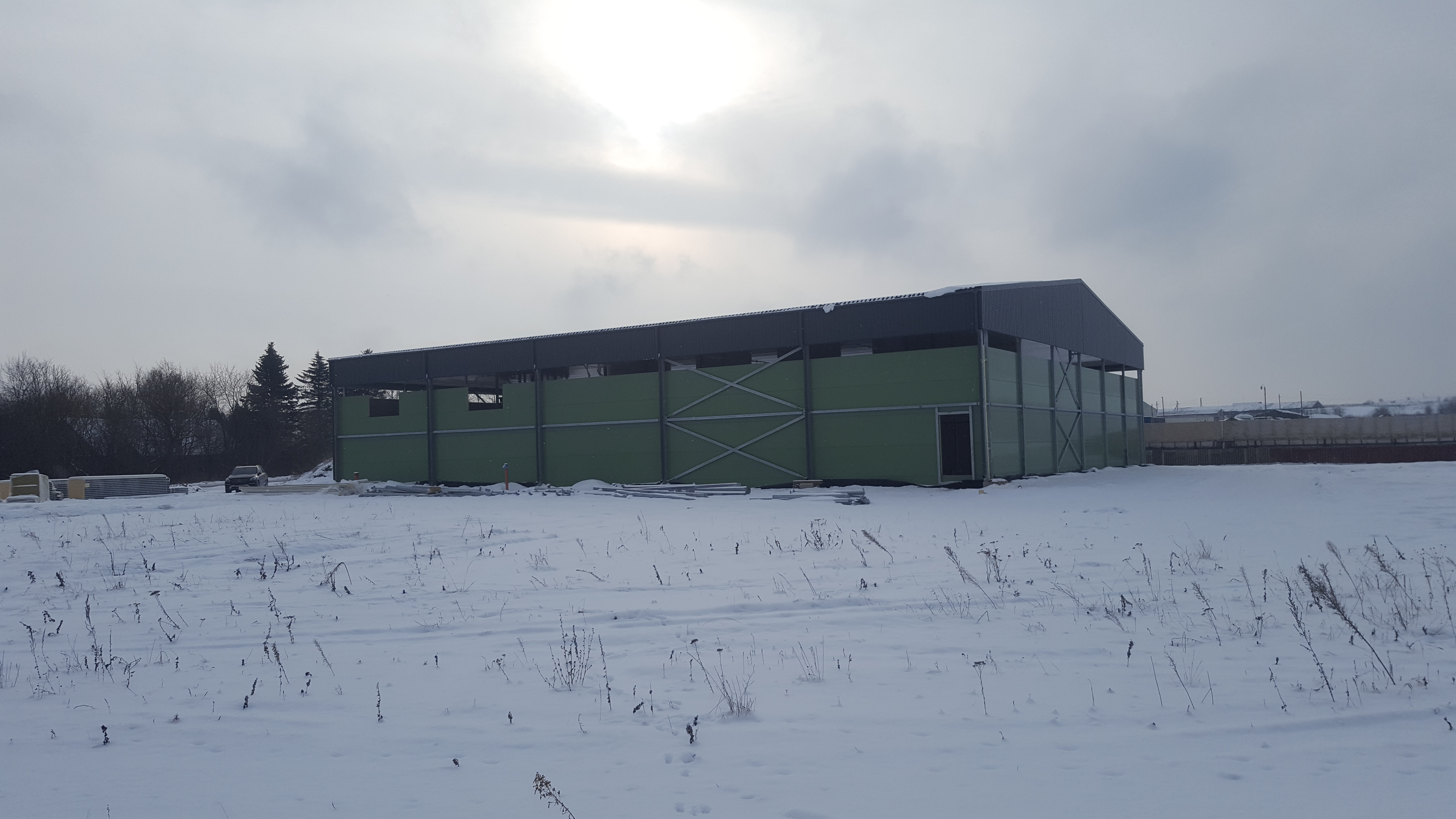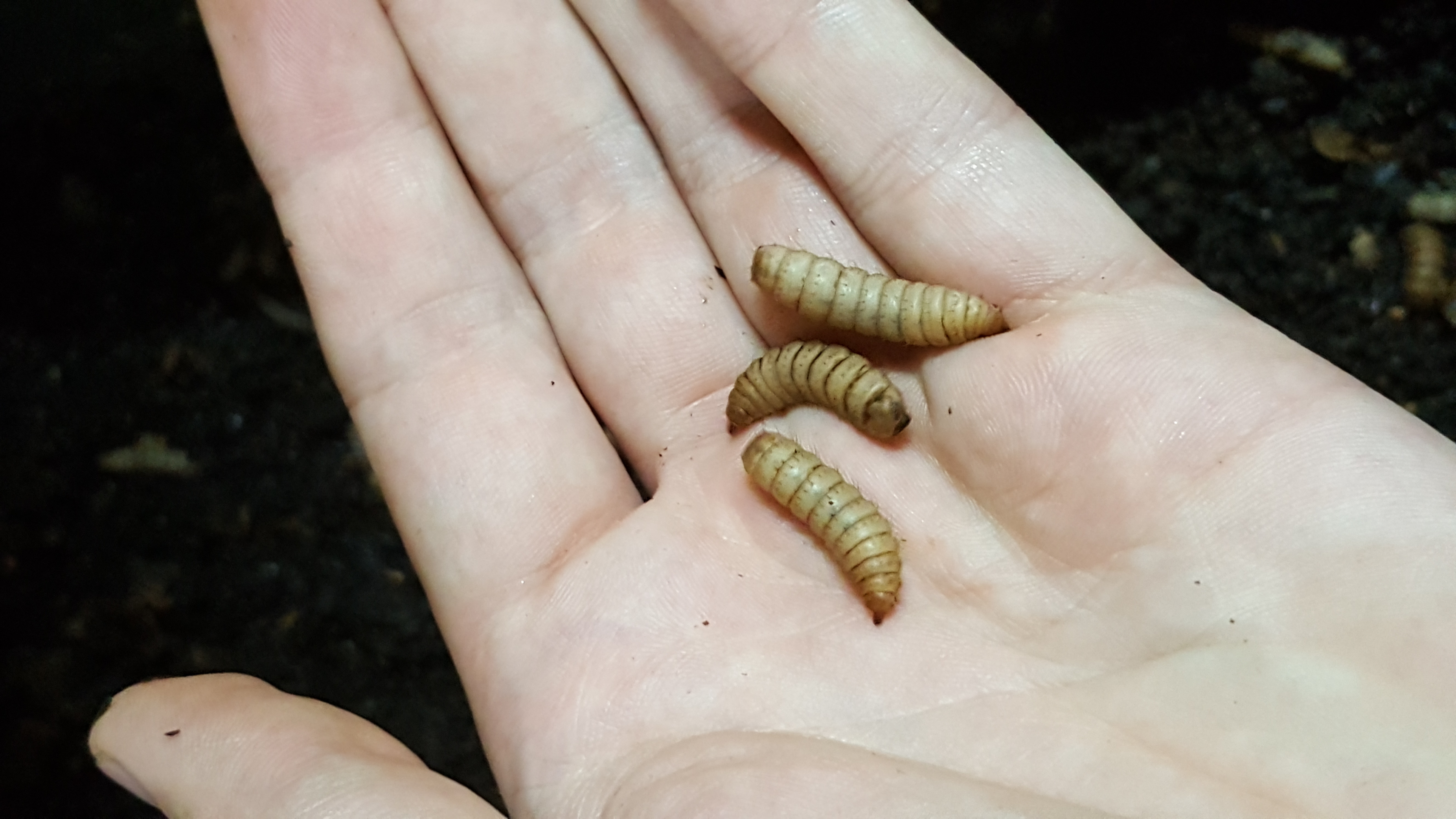 Interview with Domantas Tracevicius, cofounder of Insectum
Interview with Domantas Tracevicius, cofounder of Insectum
Tell us about Insectum and how you got involved in the insect world
For the past 10 years I have spent working with various biodegradable waste composting. Composting is a great waste treatment process, which allows to return nutrients to soil. But compost itself is a rather low value product and we were looking for options to create greater value from clean food waste and former foodstuffs streams. One of co-founders of Insectum and composting pioneer in Lithuania Stanislavas Tracevicius used to experiment with flies back in 1998-1999. At the time, it was very difficult to create value from food waste as landfilling was main option and people looked with a sceptisism towards larvae and products made from them. A bit more than two years ago we decided to revive idea of growing insects on food waste. After some research we chose to work with Black Soldier fly due to its versatility to feed on a very wide range of food waste types and high speed and efficiency (compared to other insects) of food waste conversion to body mass. We teamed up with local entomologists and started experimenting. After half a year we were already having success in breeding BSF and we decided to establich company Insectum and invest in this direction. Now we are already at the final months of completing our semi-commercial facility, which will be able to produce about 1 ton of live BSF per day. We hope to be able to start operations there in about 2-3 months and reach full capacity by the end of the year.
What products are you marketing?
Main product that we are marketing is frozen BSF larvae. It commands a high demand as part of mink feed additive.
Do you need any special authorization to deal with insects in Lithuania?
Lithuanian authorities look at our company with interest and helpfull attitude. As we concentrate on producing larvae as animal feed we are bound by EU regulations. IPIFF has been amazing in making way for insects to enter food chain. We have high hopes for authorisation of BSF larvae for poultry.
What kind of market growth do you forecast for the next 3 years?
I’m afraid to say any number, because at the moment the market is growing exponentially. It will depend a lot on the EU regulations. IPIFF is working hard to prove safety of insect PAPs to EFSA and DG SANTE for use in poultry and pig industries. Also, insects go as a premium product at the moment, due to their sustainable nature, limited supply and high cost of production. If insect rearing companies, such as ours, will be able to produce large quantities of insects at cost similar or lower than fish meal we will truly have a biggest shift in agriculture.
What’s your opinion about our food-production system?
World produces enough food to feed all population, but due to food production inefficiencies and demand for animal products, we still have hunger in some parts of the world and huge wastage in other combined together with massive strain on environment. I think that in the future we will have some sort of meat tax to reflect it’s true environmental impact as well as large efforts to reduce food wastage. Insects can certainly be part of solution and help to sustainably return nutrients back to the food chain. Following some of entomologist research, such as Andreas Vilcinkas, I have a hope that in future insects may be able to solve our overuse of antibiotics.
Do you think that its unsustainability it’s the most powerful boost for your business?
Yes, it is probably main factor at the moment, as a lot of agriculture feed manufacturers and users are interested in becoming more sustainable. But comparing it to whole agriculture industry, it is a drop in a bucket. As much as it saddens me, we still live in the world where almost a billion people go hungry to bed each night, most of energy comes from fossil based fuels and narrow mindedness dominate politics. We see that insect industry (for animal feed) will follow similar path as renewable energy technologies. Once it becomes more efficient that existing alternatives it will start having a global impact. So we concentrate our technology on efficiency.






